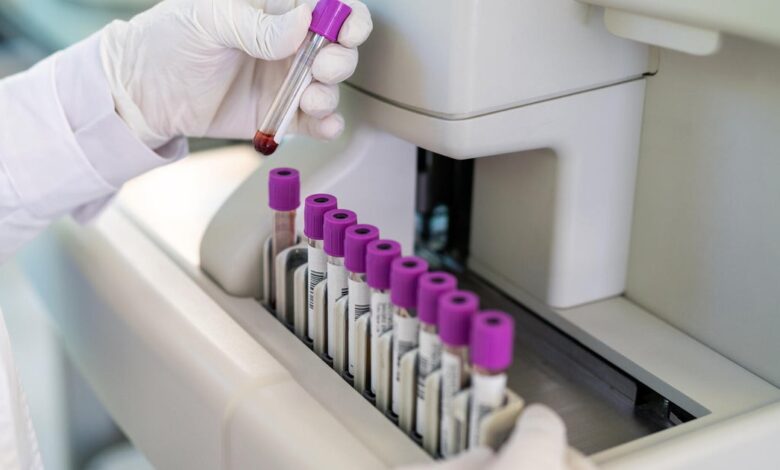FDA greenlights marketing of first Alzheimer’s blood test for some patients

The Food and Drug Administration has recently given the green light to Japan-based test manufacturer Fujirebio to market its blood test for diagnosing Alzheimer’s disease in certain patients. This approval paves the way for wider availability of this diagnostic approach, which utilizes Fujirebio’s Lumipulse equipment. This fully automated system is capable of running 120 tests per hour on blood samples and is already widely available in clinical laboratories across the United States.
The blood test works by measuring two specific proteins in the blood that are associated with the presence of amyloid plaques in the brain, a hallmark of Alzheimer’s disease. Dr. Michelle Tarver, director of the FDA’s Center for Devices and Radiological Health, emphasized the importance of this clearance in facilitating earlier diagnosis of Alzheimer’s disease for patients in the U.S.
It is important to note that not all individuals are suitable candidates for Fujirebio’s blood test. The FDA specifies that the test is intended for patients presenting with signs and symptoms of cognitive decline in specialized care settings and is limited to adults aged 55 and older.
Fujirebio submitted data from a study involving 499 blood plasma samples from adults with cognitive impairment to support the efficacy of their blood test. The results showed a high correlation between the blood test results and traditional methods of detecting amyloid plaques in the brain, such as brain scans and spinal fluid tests.
The FDA’s approval of Fujirebio’s test comes after years of other blood tests for Alzheimer’s being sold without regulatory clearance. The agency previously sought to regulate laboratory-developed tests for Alzheimer’s and other health conditions more strictly under the Biden administration.
Experts have expressed caution about previous blood tests for Alzheimer’s that were being marketed under different regulations governing high complexity testing conducted by individual laboratories. The FDA’s crackdown on these tests aimed to ensure the safety and effectiveness of diagnostic tools for Alzheimer’s and other conditions.
In a successful legal challenge, the American Clinical Laboratory Association overturned the FDA’s rule on laboratory-developed tests, arguing that the regulation would have impeded patient access to vital testing services. This ruling underscores the ongoing debate over the regulation of diagnostic tests and the need to balance innovation with patient safety.
In conclusion, the FDA’s approval of Fujirebio’s blood test represents a significant advancement in Alzheimer’s diagnostics, offering a non-invasive and potentially more accessible method for early detection of the disease. As research continues to evolve in this field, it is crucial to prioritize patient safety and ensure the reliability of diagnostic tools for Alzheimer’s and other neurodegenerative conditions.





